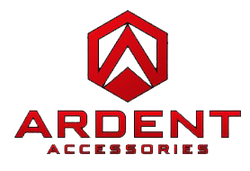Wheel adapters are a popular option when you are working on upgrading or enhancing the truck’s wheels. They give your truck a more aggressive look and stance. They also allow the wheels to fit with different bolt patterns.
Here comes the question: Are wheel adapters safe? So this blog is the complete guide on it. Here you will come to know about the benefits, potential risks, and how to ensure safe use so you can make a confident decision.
What are wheel adapters?
It sits between the truck's hub and the wheel and is usually made up of metal components, usually made up of billet aluminum and steel.
Their primary purpose is
l Changes the bolt pattern so that you can fit the wheel from a different vehicle.
l For the clearance and the stance, it pushes the wheels outward.
Just like the spacers, they also convert bolt patterns. It makes it more complex and requires extra attention during the installation.
Are they safe for trucks?
The answer to this question is yes. Wheel adapters are safe, but only under certain conditions when the quality is good. Secondly, when they are installed correctly.
For fitting aftermarket wheels and also for off-roading, many truck drivers use them without any issues. But keep in mind that the misuse of poor-quality mains leads to wheel failure, vibrations, or even an accident.
When wheel adapters become unsafe:
Here are the common situations when the wheel adaptors may harm you:
l Low-quality materials:
The adaptors that are made from weak alloys or any cast metal result in low-quality and cheap adaptors.
l Incorrect torque:
If you over- or undertighten the lug nuts, it can result in losing wheels while driving.
l Non-hubcentric fit:
If the adapter you choose doesn't cover the hub, then it can result in vibrations because it is not hub-centric.
l Over thick adapters:
The wheel adapter goes further than 1.5 inches, then it can add additional leverage on suspension and steering components.
l Stacking adapters or spacers:
Stacking adaptors or spacers is highly unsafe because it can lead to separation.
Risks involved with using adaptors on trucks
For extreme off-roading, drawing howling heavy-duty vehicles are meant to be used like trucks. But the improper adapters can result in:
Increase the level of stress on wheel bearings and suspension parts.
They could make your tire uneven.
Moreover, legal concerns may arise because some regions do not allow aftermarket modifications.
How to use the wheel adapter safely?
1.Choose quality adaptors:
Purchase a CNC-machined, hub-centric adapter composed of forged steel or 6061-T6
aluminum. Steer clear of unknown brands or those with bad customer feedback.
2.Check fitment:
Make sure the stud length and thread pitch are appropriate and that the adapter's center bore matches the hub of your car.
3.Install with proper torque:
To secure lug nuts according to the manufacturer's instructions, use a torque wrench rather than an impact gun. The adapter may become distorted if it is overtightened, and it may become loose if it is undertightened.
4.Retorque after 50-100 miles:
After initial use, adapters may settle. To ensure a tight fit, retighten the nuts.
5.Inspect regularly:
Check for loosening, corrosion, or wear. Check every few thousand miles, especially if you frequently tow or go off-road.
Concluding Remark:
Wheel adapters for trucks are safe, provided that they are of good quality, installed correctly, and maintained on a regular basis. They're used by thousands of off-roaders, haulers, and show truck enthusiasts around the world.
But there isn't much room for error. See your neighborhood mechanic or a wheel specialist if you're not sure.
Need Help Choosing the Right Wheel Adapters?
For knowledgeable advice, premium adapters, and dependable customer service, visit Ardent Accessories. Whether you're upgrading for clearance, performance, or appearance, our team is here to help you drive safer and stronger


Leave a comment